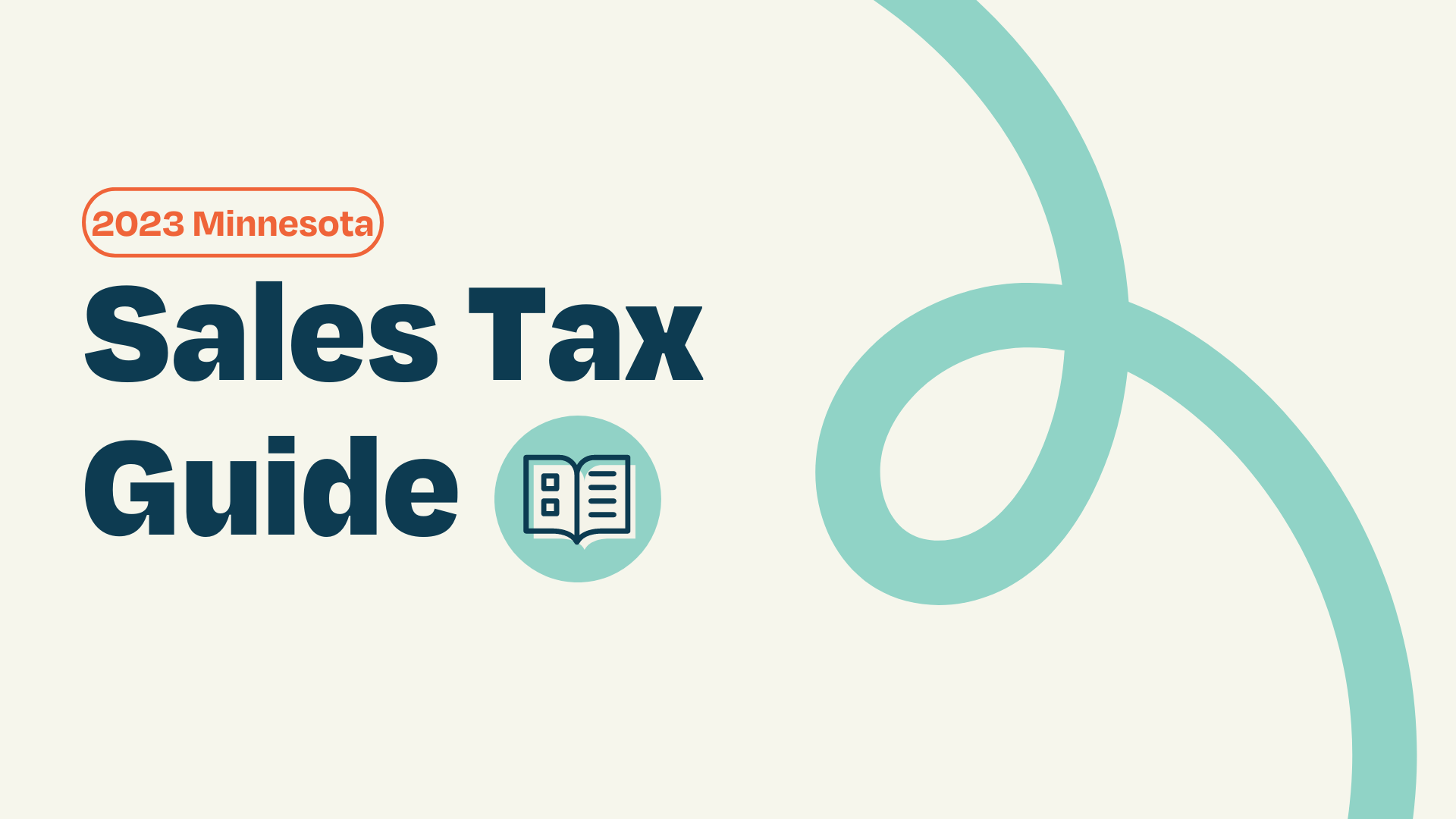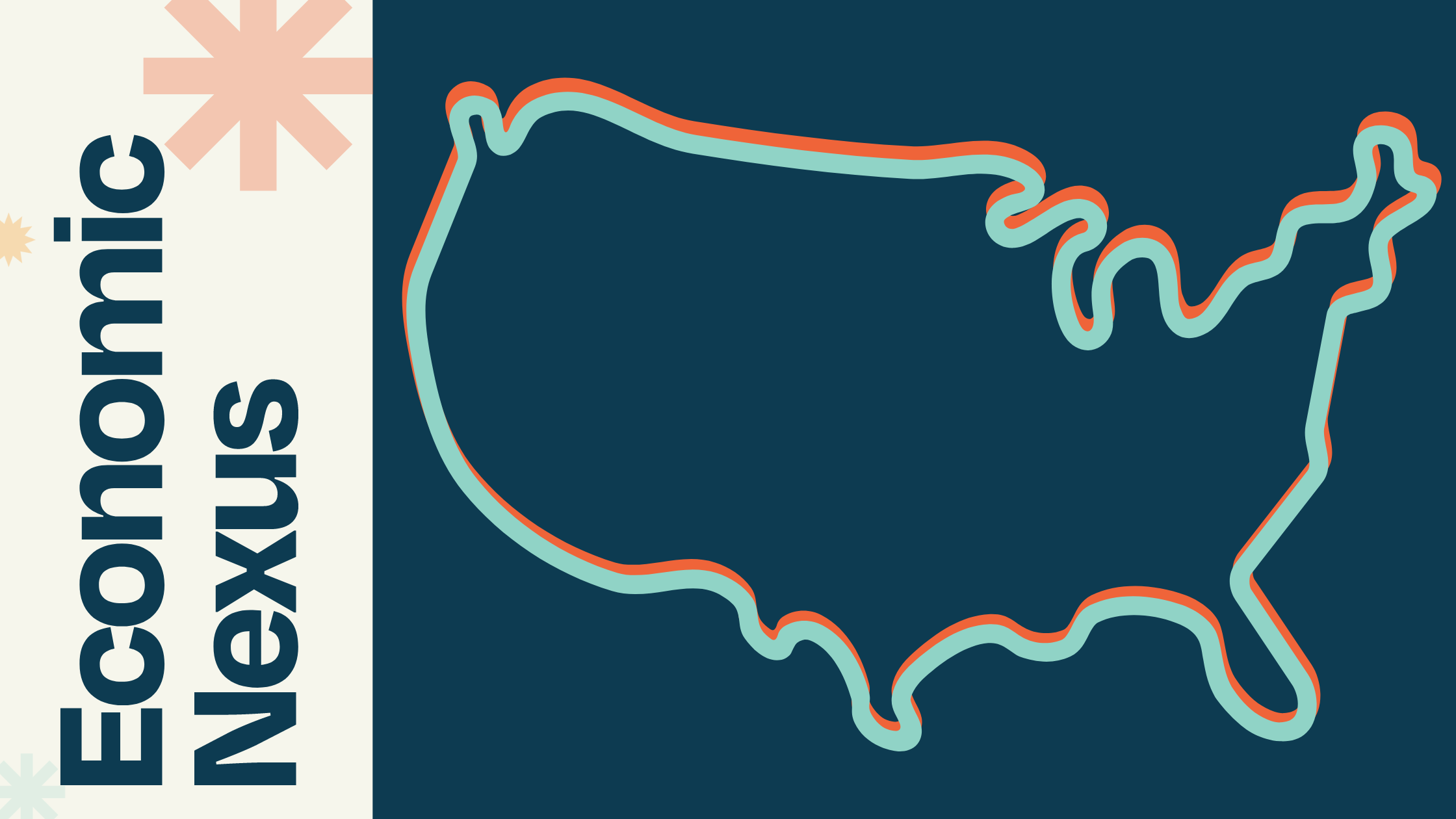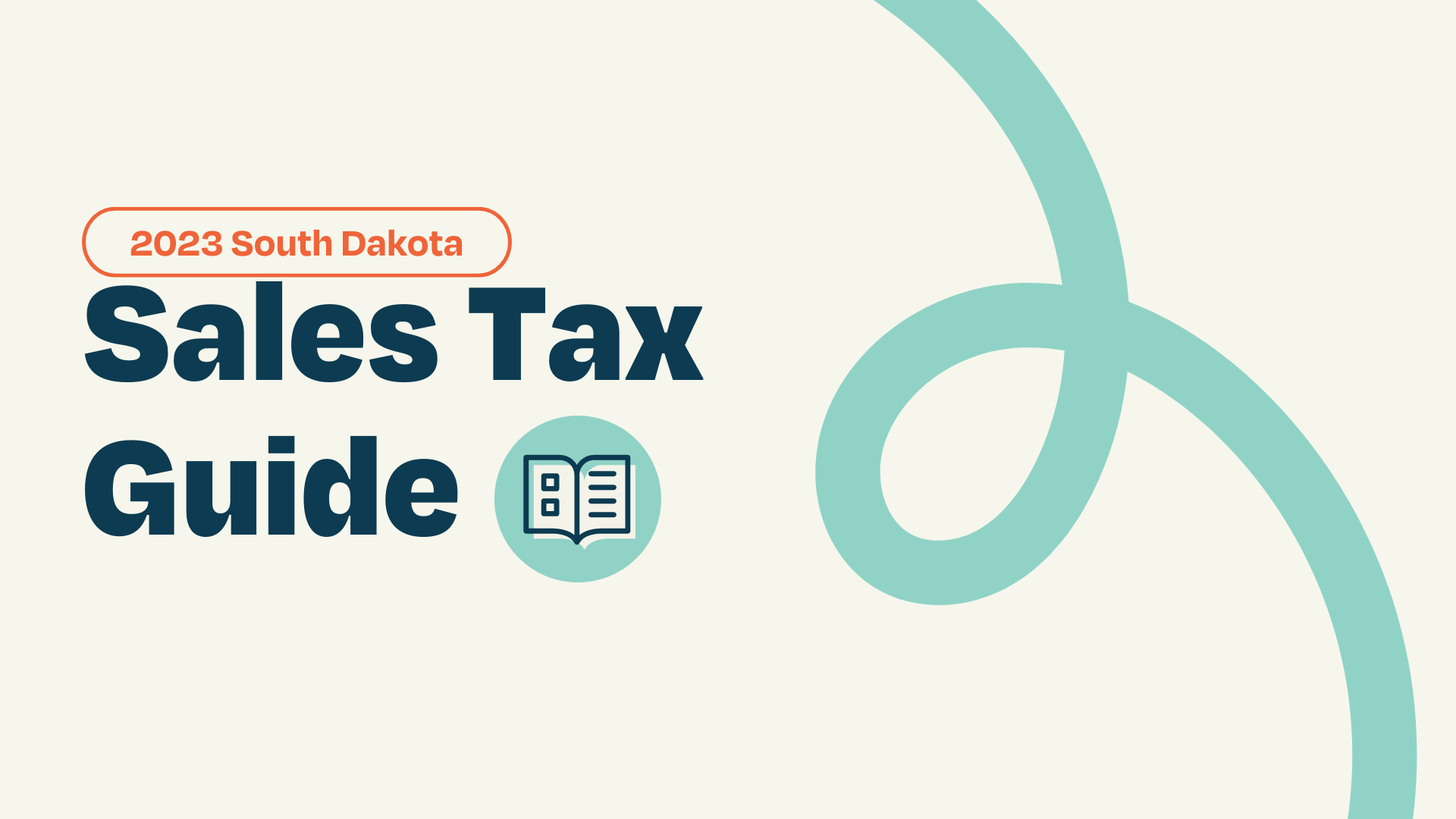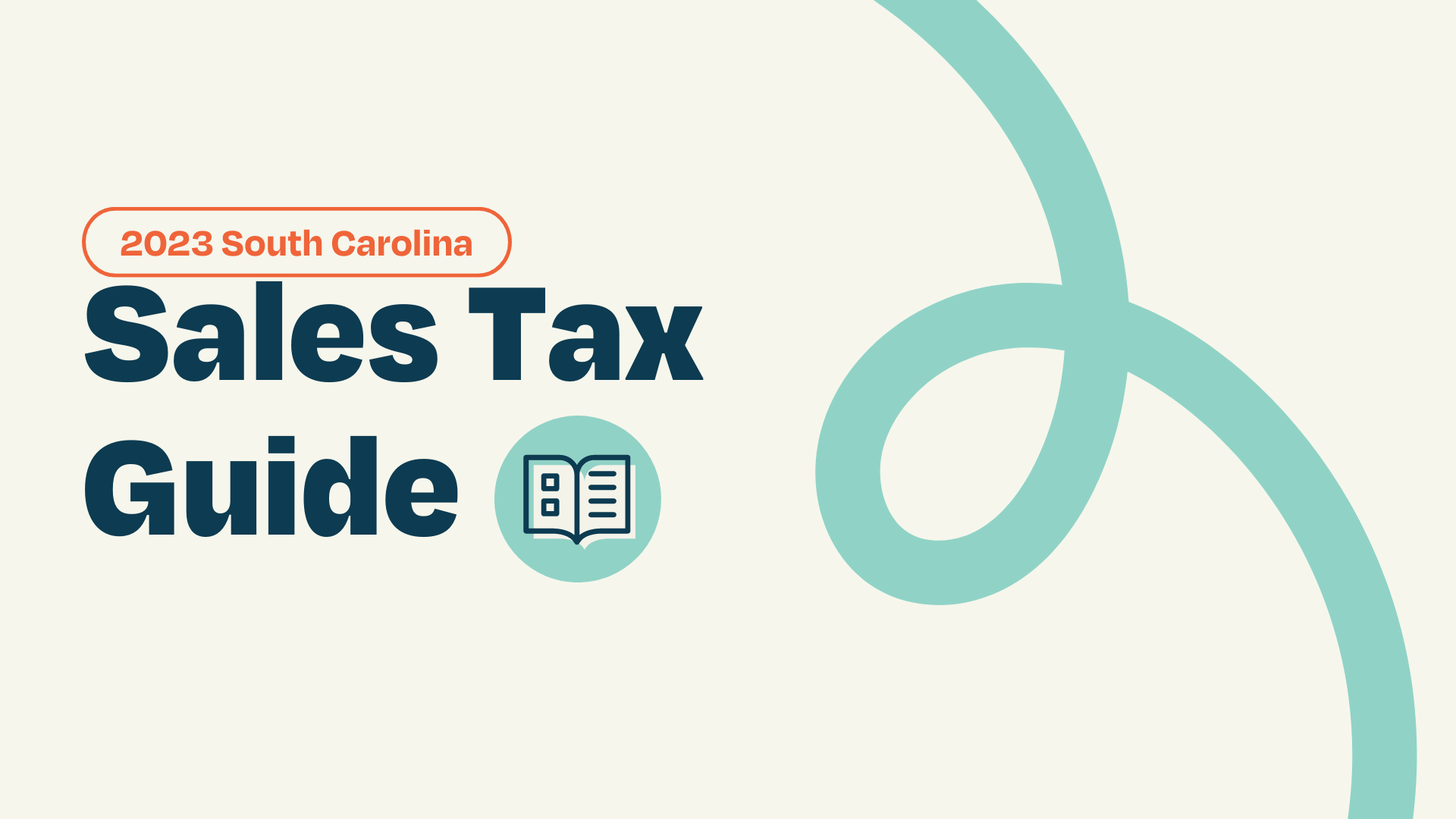1 min read
Economic Nexus by State: A Comprehensive Guide
As businesses continue to expand their online presence, understanding the implications of economic nexus has become increasingly important. Economic...

Welcome back, small business champions! Today, we're diving into the world of Minnesota sales tax returns, a crucial aspect of running a successful and compliant business in the North Star State. While sales tax returns may seem intimidating at first, fear not! We at Accountingprose are here to guide you through the process with helpful tips, expert advice, and a healthy dose of tax humor.
In this guide, we'll explore the essentials of filing and paying sales tax in Minnesota, the potential penalties for non-compliance, and the ins and outs of sales tax incentives. We'll also share five invaluable tips to help you avoid common mistakes when filing your sales tax returns. So, grab your superhero cape and join us on this exciting journey, as we conquer Minnesota sales tax returns together and strengthen your small business success story!
|
Table of Contents |
If you're a small business owner looking to navigate the world of Minnesota sales tax, it's essential to know the right folks to reach out to for guidance and assistance. The Minnesota Department of Revenue is your go-to agency for all things sales tax-related in the North Star State.
The Minnesota Department of Revenue is responsible for administering and enforcing Minnesota sales tax laws, ensuring businesses collect, report, and remit sales tax correctly.
Here's the contact information you need to connect with the Minnesota Department of Revenue:
Website: www.revenue.state.mn.us
Email: salestax@state.mn.us
Phone: 651-296-6181 or 800-657-3777 (toll-free)
Fax: 651-556-3102
Mailing Address:
Minnesota Department of Revenue
Mail Station 6330
St. Paul, MN 55146-6330
The Minnesota Department of Revenue offers a wealth of resources on their website, including guides, forms, and frequently asked questions to help you understand and comply with Minnesota sales tax requirements.
Don't hesitate to reach out to the department for guidance and support as you tackle sales tax in Minnesota. And remember, your friends at Accountingprose are always here to help, providing expert advice and assistance to ensure your small business conquers sales tax with confidence and ease.
Hey there, small business adventurers! Before you embark on your Minnesota sales tax journey, you'll need to determine if you have "nexus" in the state. Nexus is a fancy term for a significant connection or presence that requires you to collect, report, and remit sales tax. But fear not, intrepid entrepreneurs, for we're here to help you navigate the various types of nexus and their implications for your business.
In Minnesota, there are several ways your business can establish sales tax nexus, including physical, economic, affiliate, click-through, and marketplace nexus. Let's explore each type and how it might apply to your small business.
Physical nexus occurs when your business has a tangible presence in Minnesota, such as:
Owning or leasing property (e.g., office, warehouse, storefront)
Having employees or sales representatives in the state
Storing inventory in the state
Participating in trade shows or events
If any of these scenarios apply to your business, congratulations! You've got physical nexus in Minnesota and must collect, report, and remit sales tax.
Economic nexus is established when your business generates a significant amount of revenue or conducts a certain number of transactions in Minnesota, even without a physical presence. As of 2021, you have economic nexus in Minnesota if, during the previous 12-month period, your business has:
At least $100,000 in gross revenue from sales in the state, or
200 or more separate transactions in the state
If you meet either of these criteria, it's time to roll up your sleeves and tackle Minnesota sales tax!
Affiliate nexus arises when your business has a relationship with another entity in Minnesota that helps promote or sell your products or services. This may include:
Parent, subsidiary, or sibling companies with a presence in the state
In-state agents or representatives who refer customers to your business
If your business has such relationships in Minnesota, you've got affiliate nexus and must collect, report, and remit sales tax.
Click-through nexus occurs when your business enters into agreements with in-state affiliates who refer customers to your website through a link or promotional code. You have click-through nexus in Minnesota if:
Your in-state affiliates receive a commission or other compensation for referrals, and
Your total gross revenue from these referrals exceeds $10,000 in the previous 12 months
If this sounds like your business, it's time to gear up for Minnesota sales tax!
Marketplace nexus comes into play when your business sells products or services through a marketplace facilitator (e.g., Amazon, eBay, Etsy) that has a presence in Minnesota. In this case, the facilitator is generally responsible for collecting, reporting, and remitting sales tax on your behalf. However, it's crucial to verify this arrangement and ensure compliance with Minnesota sales tax laws.
Now that you're well-versed in the various types of nexus, you're ready to determine your sales tax obligations in Minnesota and conquer the world of sales tax with confidence. As always, your allies at Accountingprose are here to support you on your small business adventure, offering expert guidance and assistance every step of the way.
Greetings, small business trailblazers! Once you've determined that you have nexus in Minnesota, it's time to register for a Minnesota sales tax license. Fear not, for we're here to guide you through the registration process step by step, ensuring your business is all set to collect, report, and remit sales tax in the Land of 10,000 Lakes.
To register for a Minnesota sales tax license, follow the steps below:
Gather your information: Before you begin the registration process, make sure you have the following information handy:
Your business name, address, and contact information
Your Social Security Number (SSN) or Federal Employer Identification Number (EIN)
A description of your business activities
The date your sales will begin in Minnesota
Your anticipated total monthly sales in the state
Create an e-Services account: To register for a sales tax license, you'll need to create an account with the Minnesota Department of Revenue's e-Services system. Visit the e-Services registration page and follow the instructions to set up your account.
Apply for a sales tax license: Once you've logged into your e-Services account, navigate to the "Business Registration" section. Fill out the online application with the information you gathered in step 1. Be sure to double-check your entries for accuracy before submitting the form.
Wait for approval: After submitting your application, the Minnesota Department of Revenue will review your information and, if approved, issue you a sales tax license. This process typically takes around two weeks, but may vary depending on the volume of applications. Once you receive your license, you'll be ready to start collecting sales tax on your taxable sales in Minnesota.
Great news, small business heroes! There is no fee to register for a Minnesota sales tax license. So, you can channel your financial resources toward growing your business and conquering the world of sales tax.
Yes, you will need a Federal Tax ID Number, also known as an Employer Identification Number (EIN), to register for a Minnesota sales tax license. The EIN is a unique identifier issued by the Internal Revenue Service (IRS) for your business. If you don't already have an EIN, you can apply for one online through the IRS website. The process is quick, easy, and free.
In addition to registering for a sales tax license with the Minnesota Department of Revenue, your business may also need to register with other state agencies, depending on your specific operations and activities. Some common agencies small businesses may need to register with include:
Minnesota Secretary of State: If your business is structured as a corporation, limited liability company (LLC), or partnership, you'll need to register with the Minnesota Secretary of State. Visit their website for more information and to access the necessary forms.
Minnesota Department of Employment and Economic Development (DEED): If you have employees in Minnesota, you'll need to register with DEED for unemployment insurance, workers' compensation, and other employment-related matters. Visit the DEED website to learn more and register.
Minnesota Department of Labor and Industry: Depending on your industry, you may need to register with the Minnesota Department of Labor and Industry for occupational licensing or safety requirements. Visit their website to explore their resources and determine if registration is necessary for your business.
And there you have it! By following these steps and registering with the appropriate agencies, your business will be well-prepared to traverse the Minnesota sales tax landscape with confidence and ease.
Hello, small business champions! Now that you're registered for a Minnesota sales tax license, it's time to dive into the nitty-gritty of collecting sales tax in the state. But fear not, for we're here to guide you through the ins and outs of Minnesota sales tax rules, ensuring you're well-equipped on your sales tax adventure.
Minnesota is a destination-based sales tax state. This means that sales tax rates are determined by the location of the buyer, rather than the location of the seller. So, when you're calculating the sales tax rate to apply to a transaction, you'll need to consider the buyer's shipping address or the location where the product is picked up or the service is provided.
In Minnesota, sales tax generally applies to the sale of tangible personal property and certain services. Some examples include:
Physical goods, such as furniture, electronics, and clothing
Installation, repair, or maintenance services for tangible personal property
Rental of tangible personal property
Digital products, like e-books, streaming services, and digital downloads
Be sure to consult the Minnesota Department of Revenue's website for a comprehensive list of taxable items and services.
Yes, Software as a Service (SaaS) is subject to sales tax in Minnesota. The state considers SaaS to be a taxable service, as it involves providing access to software and related support services over the internet.
Minnesota exempts certain items and services from sales tax, including:
Groceries, prescription medication, and clothing (with some exceptions)
Agricultural and industrial production materials and equipment
Educational materials and services
Certain medical and dental services and equipment
For a more detailed list of exemptions, visit the Minnesota Department of Revenue's website.
Certain organizations and individuals may qualify for sales tax exemptions in Minnesota, such as:
Nonprofit organizations, including schools, churches, and charitable organizations
Government agencies
Farmers and agricultural producers
Manufacturing and industrial businesses
To claim a sales tax exemption, eligible organizations and individuals must provide a valid exemption certificate to the seller.
If your customer is exempt from sales tax in Minnesota, you must obtain a completed and signed exemption certificate from them. Keep this certificate on file to prove that the sale was exempt, in case of an audit. Remember, it's your responsibility as the seller to maintain accurate and up-to-date records of all exemption certificates.
If you lose an exemption certificate, it's essential to request a new copy from your customer as soon as possible. Failing to maintain proper records of exemption certificates could result in penalties or fines during an audit. Keeping digital copies of these certificates is a great way to ensure they're always accessible and secure.
And there you have it! By understanding the intricacies of collecting sales tax in Minnesota, you're well on your way to mastering the world of sales tax. As always, your allies at Accountingprose are here to support you on your small business journey, offering expert guidance and assistance every step of the way.
As you continue your sales tax journey in Minnesota, the next step is learning how to file and pay your sales taxes properly. Don't worry, though – we're here to guide you through the process, ensuring you stay on the right side of the Minnesota Department of Revenue.
In Minnesota, the frequency of filing and paying sales tax depends on the average amount of tax you collect. The state uses three filing frequencies: monthly, quarterly, and annually. Here's a breakdown of the filing frequency thresholds:
Monthly: If your average monthly tax liability is $500 or more
Quarterly: If your average monthly tax liability is $100 to $499.99
Annually: If your average monthly tax liability is less than $100
The Minnesota Department of Revenue will assign your filing frequency when you register for a sales tax license. Make sure to pay close attention to the frequency you are assigned, as filing and paying late can result in penalties.
If a Minnesota sales tax filing date falls on a weekend or holiday, don't fret! The deadline is extended to the next business day. So, go ahead and enjoy your weekend or holiday, knowing you have a little extra time to file and pay your sales tax.
Filing a Minnesota sales tax return is a breeze with the state's e-Services system. Follow the steps below to file your sales tax return online:
Log in to your e-Services account: Visit the Minnesota Department of Revenue e-Services website and log in to your account.
Locate the correct tax period: On your account dashboard, find the tax period for which you need to file your sales tax return. Make sure to double-check that you're working with the correct period to avoid any confusion or errors.
Enter your sales data: For the selected tax period, you'll need to enter information about your taxable sales, exempt sales, and the total amount of sales tax you've collected. Be sure to include any local sales taxes you've collected for sales within Minnesota. As you input your data, the e-Services system will automatically calculate the sales tax you owe.
Review and submit: Before submitting your sales tax return, take a moment to review your entries and ensure their accuracy. If everything looks good, click "Submit" to complete your sales tax return.
Pay your sales tax: After submitting your return, you'll need to pay the sales tax you owe. The e-Services system offers several payment options, including direct bank transfers (ACH debit), credit or debit card payments, and electronic check payments.
By following these steps, you can confidently file your Minnesota sales tax return and stay in compliance with the state's sales tax laws.
In Minnesota, penalties can be assessed for late filing and payment of sales tax, as well as for underpayment of tax. Here's a breakdown of the penalties:
Late filing: A penalty of 5% of the unpaid tax will be assessed if you file your return late.
Late payment: A penalty of 5% of the unpaid tax will be assessed if you pay your sales tax late.
Underpayment: If you underpay your sales tax, a penalty of 5% of the underpaid tax will be assessed.
In addition to penalties, interest will be charged on any unpaid tax, starting from the due date of the return until the tax is paid in full.
Yes, Minnesota offers various sales tax incentives to encourage business growth and development. These incentives may include exemptions, credits, or refunds on sales tax for specific industries, projects, or economic development initiatives. Some examples of sales tax incentives in Minnesota are:
Enterprise Zone Program: This program provides sales tax exemptions for qualifying businesses that invest in designated economically distressed areas.
Greater Minnesota Job Expansion Program: This program offers sales tax refunds to businesses that create jobs and invest in qualifying projects in Greater Minnesota.
Minnesota Investment Fund: This fund provides loans and grants to businesses for projects that create jobs and enhance economic development.
To learn more about sales tax incentives in Minnesota, visit the Minnesota Department of Employment and Economic Development website.
And there you have it! By understanding how to file and pay your sales taxes in Minnesota, you're well on your way to mastering the art of sales tax compliance. As always, your friends at Accountingprose are here to support you on your small business journey, offering expert guidance and assistance every step of the way.
Filing sales tax returns can be a daunting process, but fear not, small business warriors! We've compiled five tips to help you avoid common mistakes when filing your Minnesota sales tax returns. Follow these guidelines to ensure a smooth, stress-free filing experience.
Stay organized with accurate record-keeping: Meticulous record-keeping is crucial for filing accurate sales tax returns. Keep track of all your sales, taxable and exempt items, and sales tax collected. Maintain organized, up-to-date records to make the filing process easier and minimize errors.
Double-check your filing frequency: The Minnesota Department of Revenue assigns a filing frequency (monthly, quarterly, or annually) based on your average monthly tax liability. Be sure to follow the assigned frequency to avoid filing late or missing deadlines, which can result in penalties.
Verify local sales tax rates: In addition to the state sales tax rate, there may be local sales taxes that apply to your transactions. Be sure to verify the correct rates for each sale based on the buyer's location.
Collect and maintain exemption certificates: If you have customers who are exempt from sales tax, it's essential to obtain and maintain their exemption certificates. Ensure that the certificates are completed, signed, and up-to-date. Proper record-keeping will help you avoid issues in the event of an audit.
Review your return before submitting: Before submitting your sales tax return, take the time to review your entries carefully. Check for any discrepancies, errors, or omissions, and make sure the sales tax amount matches the total tax collected. This extra step will help you catch any mistakes before they become a problem.
By following these tips, you'll be well on your way to mastering the art of filing Minnesota sales tax returns. And, as always, your comrades at Accountingprose are here to support you throughout your small business journey, providing expert guidance and assistance every step of the way.
As you navigate the world of Minnesota sales tax returns, remember that you're not alone. With a little diligence, organization, and the help of these tips, you can master the ins and outs of sales tax compliance. As a small business owner, you have the power to overcome any challenges that come your way, and we at Accountingprose are here to support you in this journey.
Whether it's understanding filing frequencies, verifying local tax rates, or staying organized with accurate records, these tips can make a world of difference in ensuring a smooth and accurate sales tax filing experience. Don't hesitate to reach out to your Accountingprose team for guidance, advice, or assistance – we're here to help you succeed, every step of the way.
So, go forth and conquer your Minnesota sales tax returns, small business champions! With the right tools and support, you'll be able to focus on growing your business while maintaining compliance with the Minnesota Department of Revenue. Here's to your continued success and partnership in the small business adventure!
|
Ready to work with a Minnesota sales tax expert? We've love to work with you! |
|
Alaska Sales Tax Guide (N/A) |
||||
|
Montana Sales Tax Guide (NA) |
||||
|
Oregon Sales Tax Guide (N/A) |
||||
|
Delaware Sales Tax Guide (N/A) |
||||
|
New Hampshire Sales Tax Guide (NA) |
||||
And don't forget to check out our blog about Economic Nexus, which serves as an invaluable resource for businesses who have sales that are subject to sales tax.
This blog is for informational purposes only and the information is accurate as of 2023-06-19. If you want legal advice on sales tax law for your business, please contact a State and Local Tax (SALT) professional. Keep in mind that sales tax regulations and laws are subject to change at any time. While we strive to keep our blog current, this blog possibly may be out of date by the time you review it.

1 min read
As businesses continue to expand their online presence, understanding the implications of economic nexus has become increasingly important. Economic...

South Dakota Sales Tax in a Word Hello, trailblazers! Today, we're embarking on an expedition across the wide-open prairies of South Dakota...

South Carolina Sales Tax in a Word Welcome, fellow adventurers! Are you ready to navigate the exciting waters of South Carolina sales tax? I...